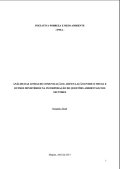
The aim of this study is to analyze the current coordination and communication mechanisms between institutions in the process of integrating environmental issues into sectoral planning and budgeting, as a basis for supporting MICOA and MPD in exercising their coordination roles.
O objectivo deste estudo é analisar os mecanismos actuais de coordenação e comunicação entre as instituições no processo de integração de assuntos ambientais na planificação e orçamentação sectorial, como base para apoiar o MICOA e o MPD no exercício dos seus papéis de coordenação.
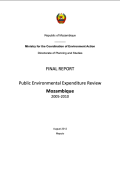
This report defines the scope of the environmental sector and provides a detailed methodology based on which data has been collected, analyzed, and reported. Also, it gives a comprehensive analysis of the preliminary findings of both quantitative and qualitative data, including macroeconomic performance, policy and legal frameworks, methodology, and preliminary assessment of the Public Environmental Expenditure Review (PEER).
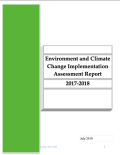
The aim of this assessment is to find out the level of implementation of environment and climate change (ECC) activities in the Sectors and districts’ plans/ reports and provide recommendations on issues that require special attention to support concerned Sectors and districts to better plan for further achievements. The report also takes into consideration the budget spent on environment and climate change interventions in relation to the total national budget spent by districts and sectors for the fiscal year 2017/18.
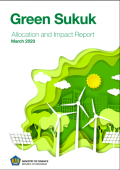
This report is the second annual green Sukuk allocation and impact report, representing the government’s commitment to full transparency and accountability in the management and use of proceeds. It provides an overview of the projected environmental benefits, geographic location of green projects, case studies of featured projects, as well as impact measurement methodology.
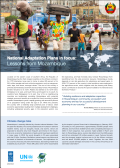
This publication outlines key lessons from Mozambique's process of developing the National Adaptation Plan (NAP), including the climate change risks, the preparation process for adaptation planning, the implementation of adaptation actions, challenges, successes, opportunities, and next steps.
